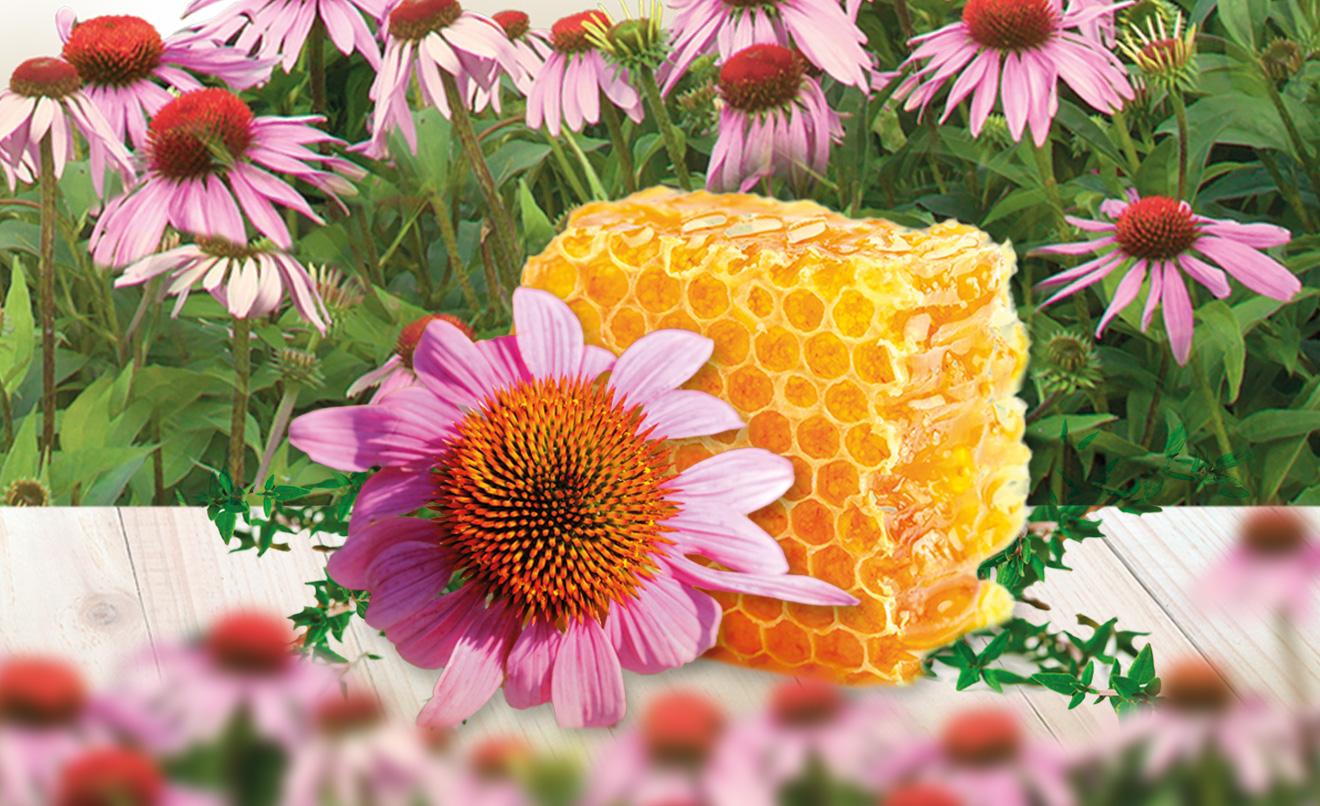Echinacea and propolis are the ones we need if we have to look in nature for two essential substances to help our immune system. They are two natural solutions that stand out for their antimicrobial and immunostimulant effects and that we cannot miss in our winter first-aid kit.
Propolis protects us from viruses and bacteria
Propolis is
a viscous substance that bees collect from the resins and secretions that cover
the buds of trees, bushes and plants near the hive, where they transport it and
modify it with their saliva.
Bees use it
to build and protect the hive by hardening the cells with it and plugging the
cracks. This way, they keep the hive closed and aseptic and thus protect it
from external agents.
What properties does propolis have?
- It has prophylactic properties, which
make our body more resistant to infections or external harm.
- It is quite useful as a natural antibiotic
for respiratory disorders, colds and sore throats.
- It is a good antiseptic, so it
protects the skin from fungi.
- Thanks to its healing properties, it
is also used externally to heal wounds and burns.
- It also has anti-caries properties,
as it prevents the formation of bacterial plaque and thus helps tackle bad
breath and relieve aphthae.
Echinacea is a natural stimulant for our defenses.
Echinacea
is native to North America, where the first references date back to the 18th
century, when it was discovered that the Native Indians used it for multiple
disorders, including sore throats, toothaches and snake bites. The European
colonists soon included it in their first-aid kit.
What are the properties of echinacea?
- Immunostimulant and immunomodulator. It
potentiates the natural defenses of the body and protects it from infections
due to viruses, bacteria and fungi.
- Antiviral. It prevents and helps
treat colds and flu. Therefore, a study carried out by researchers from
the University of Connecticut in the United States found that echinacea
reduces by 58% the risk of suffering colds and helps shorten their
duration.
- It has antimicrobial action. It contributes
to dealing with breathing or urinary infections.
- It is anti-inflammatory and
enhances wound healing.
